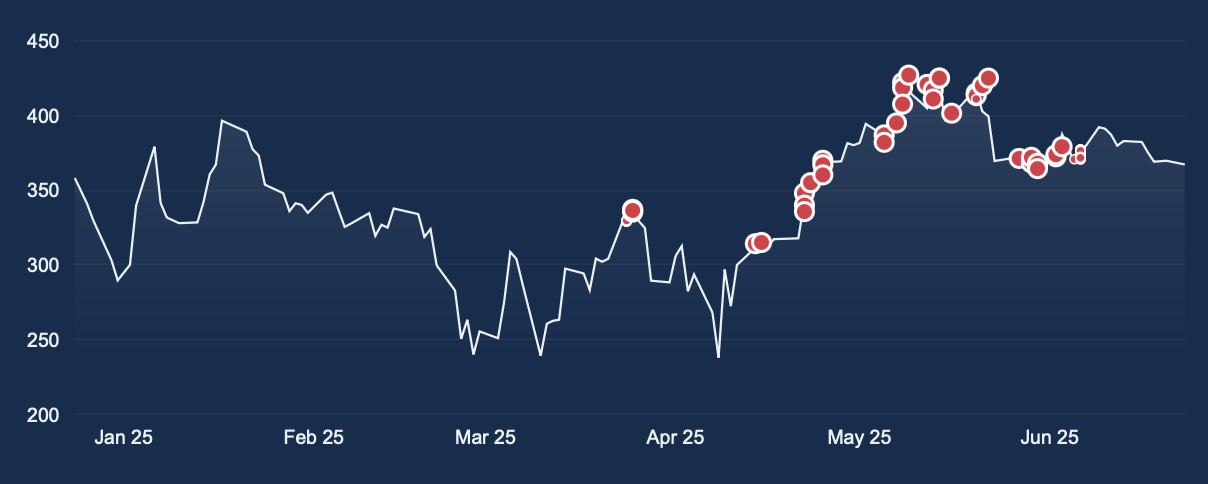MicroStrategy (MSTR) insiders receive equipped $40 million price of stock over the final 90 days. Averaging more than one sale per business day over the final three months, insiders’ selling transactions outnumber their purchases 10 to 1.
Their gross sales receive also been bigger than any purchases, with about $40.3 million in gross sales versus $2.3 million in purchases per records from InsiderScreener.
Sales of stock price hundreds and hundreds of dollars originated from choices by the corporate’s vp, chief monetary officer, and director, among others. Quite a lot of their liquidations took benefit of MSTR at some distance higher prices than today time.
Indeed, insiders equipped more than a dozen situations above $400 per half.
Read more: We made a dictionary of MicroStrategy’s invented terminology
Insiders at MicroStrategy are selling
Accountants marked some transactions with a deliberate sale code on Securities and Replace Commission Fabricate 4, indicating that these insiders had been dumping shares programmatically by the stock alternate solutions, directed half programs, or varied kinds of installment-basically based fully mostly compensation packages.
Soundless varied transactions had been coded as easy gross sales — several of which coincided with a rally final month that temporarily sustained MSTR above $400.

Soundless, these insider gross sales finest signify a itsy-bitsy share of overall executive and director ownership. As an illustration, Founder and Executive Chairman Michael Saylor restful owns about 19.6 million shares of Class B stock as properly as 382,000 Class A shares, price billions.
Total, Bloomberg estimates that he owns 8% of MicroStrategy’s equity.
Saylor also told Bloomberg that he owns as a minimum 17,732 bitcoins in my thought. Analysts estimate his total receive price to be north of $8 billion.
Even supposing insider gross sales at MicroStrategy are frequent, they’re no longer notably distinctive for public companies. Indeed, each day, dozens of officers at public companies are selling shares — most of which they receive by pre-deliberate compensation packages.
For insiders, the decision of whether or no longer to sell their newly vested shares on schedule or voluntarily waive their correct in overall comes down to an review of their private pains or familial duties that don’t receive the leisure to total with their outlook on the corporate’s stock itself.

